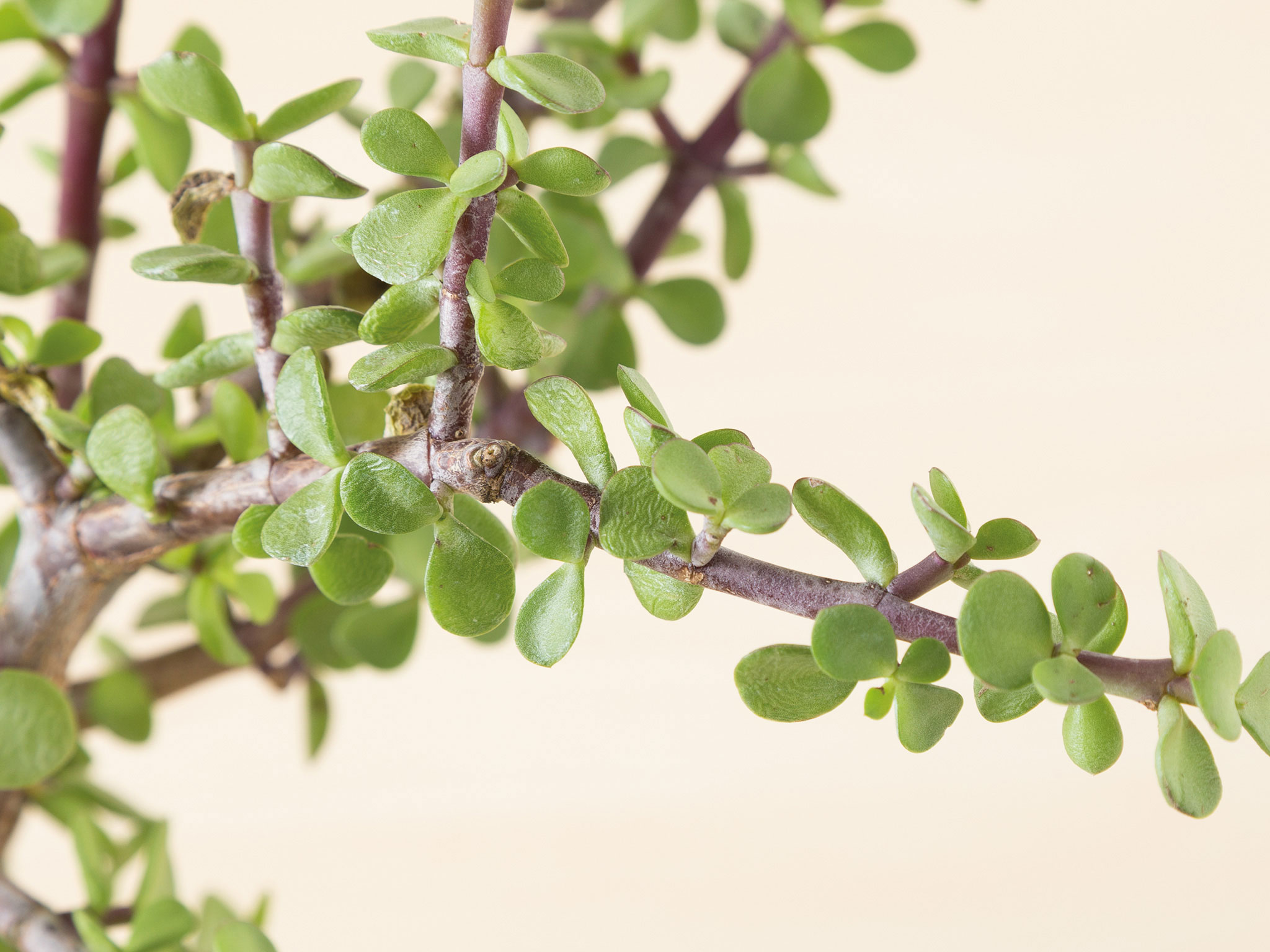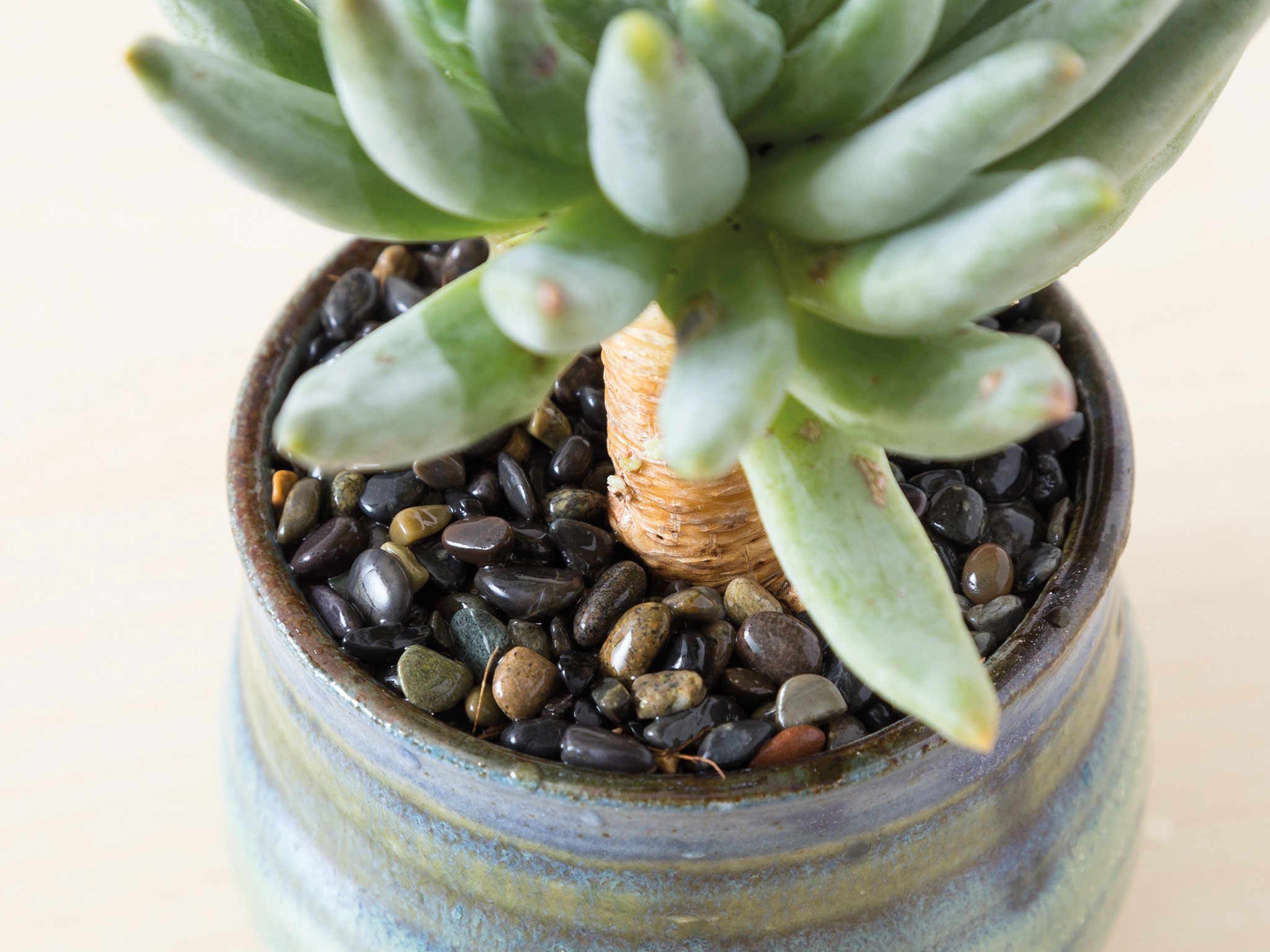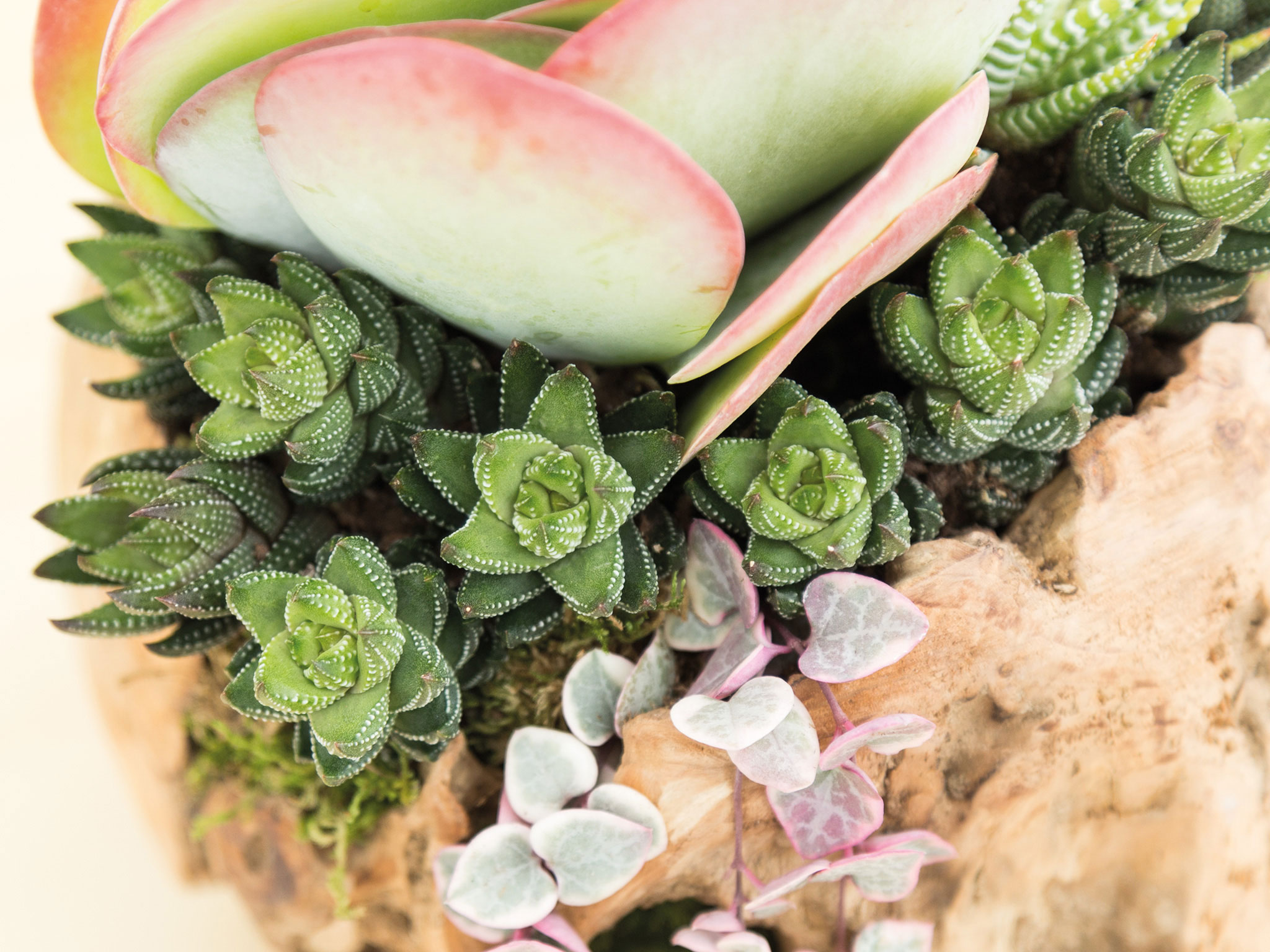When to Water Succulents
While succulents are known for being drought tolerant, there is a wide range of water needs within the group. It may take some time for you to refine your watering schedule.

When leaves begin to look dry and shriveled, it’s time to water.
Let The Leaves Be Your Guide
As a general rule, succulents with thinner leaves will need to be watered more frequently, while succulents with thicker leaves can go longer between waterings. Along with that, succulents with thicker leaves don’t tolerate overwatering as well as thinner-leaved succulents. Echeverias tend to be especially sensitive to overwatering.

Don’t water if the soil is still wet. Err on the side of under-watering.
When In Doubt, Don’T Water
If you’re worried about how frequently you are watering your succulents, err on the side of under-watering. It is much easier to give a plant more water than to save a plant that has rotted from overwatering. Especially when growing indoors, it can be hard to know how often to water. If you’re watering more than once a week and your plant isn’t looking good, cut back on watering. It does take some trial and error to get on a regular schedule. Most people tend to overwater and aren’t able to save their plants by the time they realize their mistake.

Plant succulents together that have the same active growing season.
Pay Attention To The Season
Succulents go through a period of dormancy during which they stop growing or their growing slows down considerably. During dormancy they don’t need much water. While in their active growing season, however, they like to be watered regularly. They will offset more readily, produce better colors, and look better overall if given enough water during their growing season.
Growing indoors can disrupt the dormancy cycle as there isn’t a significant change in temperature or duration of light like there is between summer and winter outdoors. You’ll still notice a change in the amount of growth, but it won’t be as apparent. Many succulents are dormant during the winter. If you are constantly running the heater, they will dry out more quickly and will still likely need to be watered regularly.

